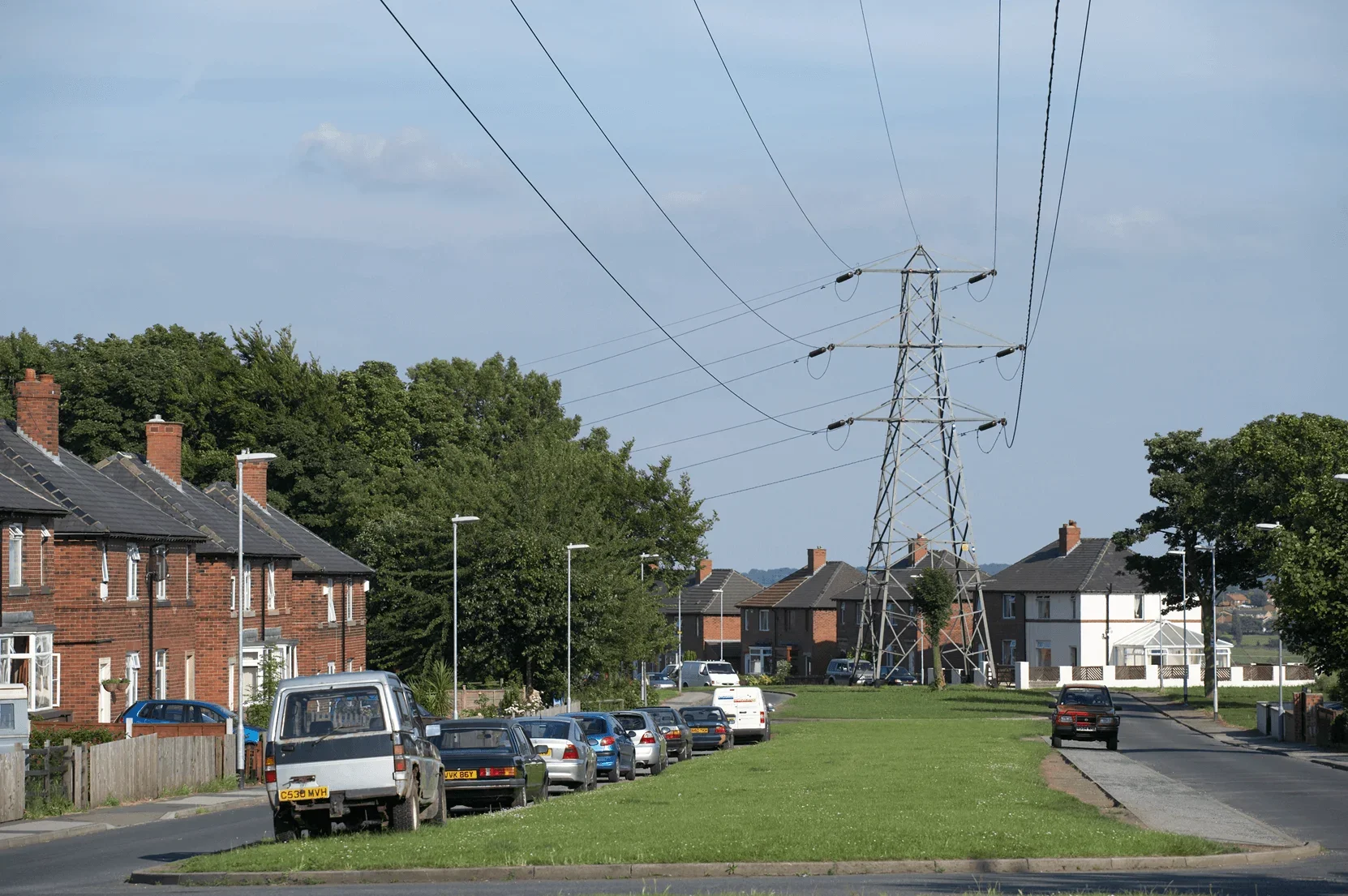BUSINESS GAS COMPARISON
Compare business gas prices and fix your rates
By clicking ‘COMPARE TODAY'S RATES’ you agree for us to search your current energy supplier and usage though industry held data. Enter manually
Is it time to compare business energy quotes and switch?
Take the hassle out of sorting your next energy deal. We compare from a panel of suppliers. You choose the rates that are right for your business.
By clicking ‘COMPARE TODAYS RATES’ you agree for us to search your current energy supplier and usage though industry held data. Enter manually
Compare deals from our panel of trusted UK business gas suppliers
How to switch business gas with MoneySuperMarket
We can switch your business to a better gas deal in three simple steps
1
We find your details
Just give us your business postcode and we’ll use smart data to find out about your business and its gas needs
2
We talk you through your quotes
One of our UK-based experts will search our supplier panel and give you a call to talk through your gas quotes
3
You choose your supplier
You then choose the supplier and contract that best suits your business and we’ll support you with the switch

Our expert says
“Business gas contracts aren’t one-size-fits-all – every company uses energy differently. That’s why it’s vital to compare quotes and fix your rates. It’s the easiest way to protect your business from rising prices and avoid expensive out-of-contract rates. Even small businesses can make big savings just by switching to a more competitive gas deal.”
- Laura Hinton, Commercial Manager
Compare today’s business energy rates
By clicking ‘COMPARE TODAY'S RATES’ you agree for us to search your current energy supplier and usage though industry held data. Enter manually
What are the latest business gas prices in 2026?
So, what’s the typical cost of business gas prices per unit? How much could the standing charge be? And how does this all add up to give you an amount you'll spend this year?
A lot depends on how much energy your business uses. Here’s a quick guide to the latest business electricity prices by business size:
January 2026 business gas usage, rates, and bills
| Business size | Average annual usage (kWh) | Average unit rate (per kWh) | Average standing charge (per day) | Average annual bill |
| Micro business | 5,000 to 15,000 | 7.1p | 38.4p | £850 |
| Small business | 15,001 to 30,000 | 6.6p | 45.8p | £1,652 |
| Medium business | 30,0001 to 65,000 | 6.6p | 48.5p | £3,312 |
| Large business | More than 65,000 | 6.6p | 71.9p | £4,552 |
Note: Prices are correct as of January 2026. Rates and bill size may vary according to your meter type and business location. The prices you’re quoted may be different from the averages shown. The figures shown are the average unit rates and standing charges quoted by Bionic per business size from January 1 to January 7, 2026.
These are averages, so your actual business gas costs may be higher or lower, depending on factors such as your location and energy efficiency.
Why compare business gas with MoneySuperMarket?
Whether your small rural restaurant is cooking on gas or you have gas-powered boilers to keep the heating on in a big city office, you don’t want to overpay for energy. That’s where comparing quotes to find the best business gas rate can help.
If you’ve not switched business energy suppliers recently, it’s almost certain you’ll be paying more than you need to. Fixing your rates is the only way to protect against price volatility and take control of your energy bills. So, when your current contract is coming to an end, get in touch with the experts at MoneySuperMarket to compare business gas prices and see how much you could save against your renewal offer.
But before you run a business gas comparison, it’s worth learning how the switching process works and what contracts are on offer. There’s usually a bit more to do than when switching home energy suppliers.
How to compare business gas rates and switch
Comparing business gas prices is simple when you get some expert help. Just give us your postcode and we’ll use smart data to find out the basics about your business and its energy needs.
To save time and hassle, our energy experts use smart data to learn about your business and its energy needs. But there are sometimes gaps in the data, so it’s good to have the following information ready if you can:
- The name of your current gas supplier
- The name of your tariff and its end date
- How much gas your business uses
Once we have this information, an energy expert will gather the best business gas rates from a panel of suppliers. To help you make a more informed decision on what’s best for your business, we'll talk you through the quotes and answer any questions. This is important as business energy contracts don't offer a cooling-off period. You need to be completely happy before you sign, or you’ll be locked into a contract you don’t want.
You then let us know which deal you prefer, and we'll start the switch.
If you have a fixed contract with your current supplier, you won’t be able to sign a new deal until your current one is in its ‘renewal window’. Once signed, this new contract won’t begin until your current one ends.
If you’re paying your supplier’s out-of-contract rates, you can sign up with another supplier at any time, and the switch could take as little as five days (depending on the size of your business). For more information, check out our guide to small and micro business energy.
Why switch business gas suppliers?
Unlike with domestic gas contracts, there are no off-the-shelf tariffs for business gas. This is because there are huge differences in how and when businesses use gas. Commercial energy contracts are designed to reflect these differences and meet the specific needs of each business.
If you think it's too much hassle, consider that switching to a better-priced business gas contract is a quick and easy way to cut costs. And, unlike other cost-cutting measures, it won’t impact the day-to-day running of your business. The gas still makes its way in through the existing pipes, meaning there’s no need for any digging or drilling at your workplace, and there’ll be no interruption to your supply.
Switching gas suppliers also means you can choose the type of tariff you’re on.
If you move into a new business premises without sorting a new contract, you’ll be placed on deemed rates with the previous occupant’s supplier.
If you’ve not switched for a while and let your last contract end without lining up a new one, you’ll be on your supplier’s out-of-contract rates. Both deemed and out-of-contract rates are more expensive than business gas rate you’ll get on a fixed contract.
But switching to a fixed-rate contract usually means you’ll get the best business gas rates available. This type of contract also protects against price volatility and can help with your monthly budgeting. This is because the costs remain more or less the same, depending on the amount of energy you use.
On the other hand, you might prefer a flexible tariff, which could see your energy bills drop if there is a fall in wholesale gas prices and your supplier passes on these savings. Variable tariffs are riskier as your rates will go up if market rates increase.
One advantage of flexible tariffs is that some allow you to give just 30 days’ notice before switching. This could be ideal if you’re at premises with a short-term lease or run a pop-up shop. If you’re on a fixed tariff, you usually can’t get out of your contract until it expires.
How to get the cheapest business gas prices
The first thing you need to know about switching business gas is that you can’t sign with a new supplier until your current deal is in its renewal window. This usually opens between one and six months before its end date.
Don’t worry if you’re unsure when this renewal window starts, your supplier will write to you with your contract's end date and an offer to extend your existing deal or a new fixed contract. Don’t accept this offer until you've run a business gas comparison to see if cheaper business gas rates are available from another supplier.
Instead, use this letter as an opportunity to serve notice on your current deal and compare quotes to find the best business gas rates. The simplest way to do this is to get in touch with our energy experts to compare what's on offer from a panel of suppliers.
Once you’ve found a deal that suits, we’ll start the switch and support you through the process.
And remember, if you don't line up a new contract to start when your current one ends, you'll automatically be placed on your supplier’s more expensive out-of-contract rates. If this happens, you can switch at any time.
What happens when you switch business gas?
Once you’ve agreed to sign up with a new supplier, you shouldn’t have anything to do until the day of the switch (although your supplier might get in touch beforehand to confirm some details). Remember, your new contract won’t start until your current one ends, so it could take a few months before you start paying your new business gas rates.
Once your details have been passed to your new supplier, they will then sort out the rest of the switch with your current supplier.
Your new supplier will send you details of the switch date and a copy of your energy contract. Be sure to thoroughly check the details, as there’s usually no cooling-off period with business gas contracts.
When everything is agreed, you’ll need to take a meter reading on the day of the switch and make sure you’ve paid any outstanding bills. This is important as your old supplier can block your switch if you owe them money.
There'll be no disruption to your supply. The gas still gets to your premises through the existing pipes, and it's just the supplier that changes.
What contributes to the cost of your business gas bills?
Your business gas bills are made up of several costs. The main one to keep an eye on is the business gas price per kWh. This is known as the unit rate and is the amount you pay for the energy you use. You also need to look out for the standing charge. This is a flat daily fee that covers the costs of things like supply and maintenance.
You can find out more in our guide to business energy bills.
These costs differ between suppliers and are calculated based on a few factors, including:
- The type of business
- The sector you operate in
- The size of your business
- Your location
Costs can also depend on the type of tariff you choose. The main kinds of business energy tariffs are:
- Fixed term – Charges are set at a fixed cost for a certain length of time, usually one to four years
- Variable rate – Rates can go up or down depending on the state of the market
- Extended – When your contract runs out with your supplier, they may offer you an extended or blend tariff
- Flex approach – You bulk-buy energy in advance, giving you access to wholesale rates
- Pass through – Your bill is split between fixed wholesale rates and other charges like National Grid and Transmission Network Use of System
- Deemed – If you move into a property without arranging a new contract, you’ll be placed on more expensive deemed rates
- Out-of-contract – This is the (often expensive) tariff you’re automatically put on if you don’t take out an energy contract
Every business could do with saving money. Switchign to cheaper rates is a quick and easy way to cut the cost of your bills. Our business gas-saving tips could help lower the cost of your business gas bills even more.
- Install efficient tech: Try appliances with higher efficiency ratings, upgraded boilers, and other eco-friendly technology
- Invest in your premises: Make your premises as green as possible. You can insulate the walls, ceilings, and floors, or install double glazing
- Turn the thermostat down: Even by just one degree. Many energy savings measures you take at home will work just as well at your business
For more ideas, check out our guide to business energy efficiency.
Should you fix your business gas rates?
Fixing your business gas rates is the only way to shield your business from price volatility and rising prices. Energy prices usually rise gradually, in much the same way that other prices rise with inflation. This is why sorting a new contract early can save you money.
Remember, it’s unlikely that the new rates you agree will be less than those you’re currently paying, but will almost certainly be less than your supplier’s out-of-contract rates. That’s where you save money by switching.
Business gas FAQs
To help you better understand how business gas comparison and switching works, here are the answers to some frequently asked questions.








